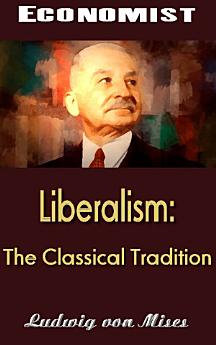Liberalism: The Classical Tradition: The Economist
Ludwig von Mises
Nob 2016 · The Economist Aklat 26 · VM eBooks
4.3star
3 reviewreport
E-book
232
Mga Page
reportHindi na-verify ang mga rating at review Matuto Pa
Tungkol sa ebook na ito
The social order created by the philosophy of the Enlightenment assigned supremacy to the common man. In his capacity as a consumer, the “regular fellow” was called upon to determine ultimately what should be produced, in what quantity and of what quality, by whom, how, and where; in his capacity as a voter, he was sovereign in directing his nation’s policies. In the precapitalistic society those had been paramount who had the strength to beat their weaker fellows into submission. The much decried “mechanism” of the free market leaves only one way open to the acquisition of wealth, viz., to succeed in serving the consumers in the best possible and cheapest way. To this “democracy” of the market corresponds, in the sphere of the conduct of affairs of state, the system of representative government. The greatness of the period between the Napoleonic Wars and the first World War consisted precisely in the fact that the social ideal after the realization of which the most eminent men were striving was free trade in a peaceful world of free nations. It was an age of unprecedented improvement in the standard of living for a rapidly increasing population. It was the age of liberalism.
Mga rating at review
4.3
3 review
Tungkol sa may-akda
Ludwig Heinrich Edler von Mises (29 September 1881 – 10 October 1973) was a theoretical Austrian School economist. Mises wrote and lectured extensively on behalf of classical liberalism. He is best known for his work on praxeology, a study of human choice and action.
Mises emigrated from Austria to the United States in 1940. Since the mid-20th century, the libertarian movement in the United States has been strongly influenced by Mises's writings.[citation needed] Mises's great student, F.A. Hayek, viewed Mises as one of the major figures in the revival of liberalism in the post-war era. Hayek's 1951 work, "The Transmission of the Ideals of Freedom" pays high tribute to Mises influence in the twentieth century liberal movement.
Mises's Austrian School was a leading group of economists. Many of its alumni, including Friedrich von Hayek and Oskar Morgenstern, emigrated from Austria to the United States and Great Britain. Mises has been described having approximately seventy close students in Austria, and the Austrians as the insiders of Chicago School of economics. The Ludwig von Mises Institute was founded in the United States to continue his teachings.
Mises emigrated from Austria to the United States in 1940. Since the mid-20th century, the libertarian movement in the United States has been strongly influenced by Mises's writings.[citation needed] Mises's great student, F.A. Hayek, viewed Mises as one of the major figures in the revival of liberalism in the post-war era. Hayek's 1951 work, "The Transmission of the Ideals of Freedom" pays high tribute to Mises influence in the twentieth century liberal movement.
Mises's Austrian School was a leading group of economists. Many of its alumni, including Friedrich von Hayek and Oskar Morgenstern, emigrated from Austria to the United States and Great Britain. Mises has been described having approximately seventy close students in Austria, and the Austrians as the insiders of Chicago School of economics. The Ludwig von Mises Institute was founded in the United States to continue his teachings.
I-rate ang e-book na ito
Ipalaam sa amin ang iyong opinyon.
Impormasyon sa pagbabasa
Mga smartphone at tablet
I-install ang Google Play Books app para sa Android at iPad/iPhone. Awtomatiko itong nagsi-sync sa account mo at nagbibigay-daan sa iyong magbasa online o offline nasaan ka man.
Mga laptop at computer
Maaari kang makinig sa mga audiobook na binili sa Google Play gamit ang web browser ng iyong computer.
Mga eReader at iba pang mga device
Para magbasa tungkol sa mga e-ink device gaya ng mga Kobo eReader, kakailanganin mong mag-download ng file at ilipat ito sa iyong device. Sundin ang mga detalyadong tagubilin sa Help Center para mailipat ang mga file sa mga sinusuportahang eReader.







